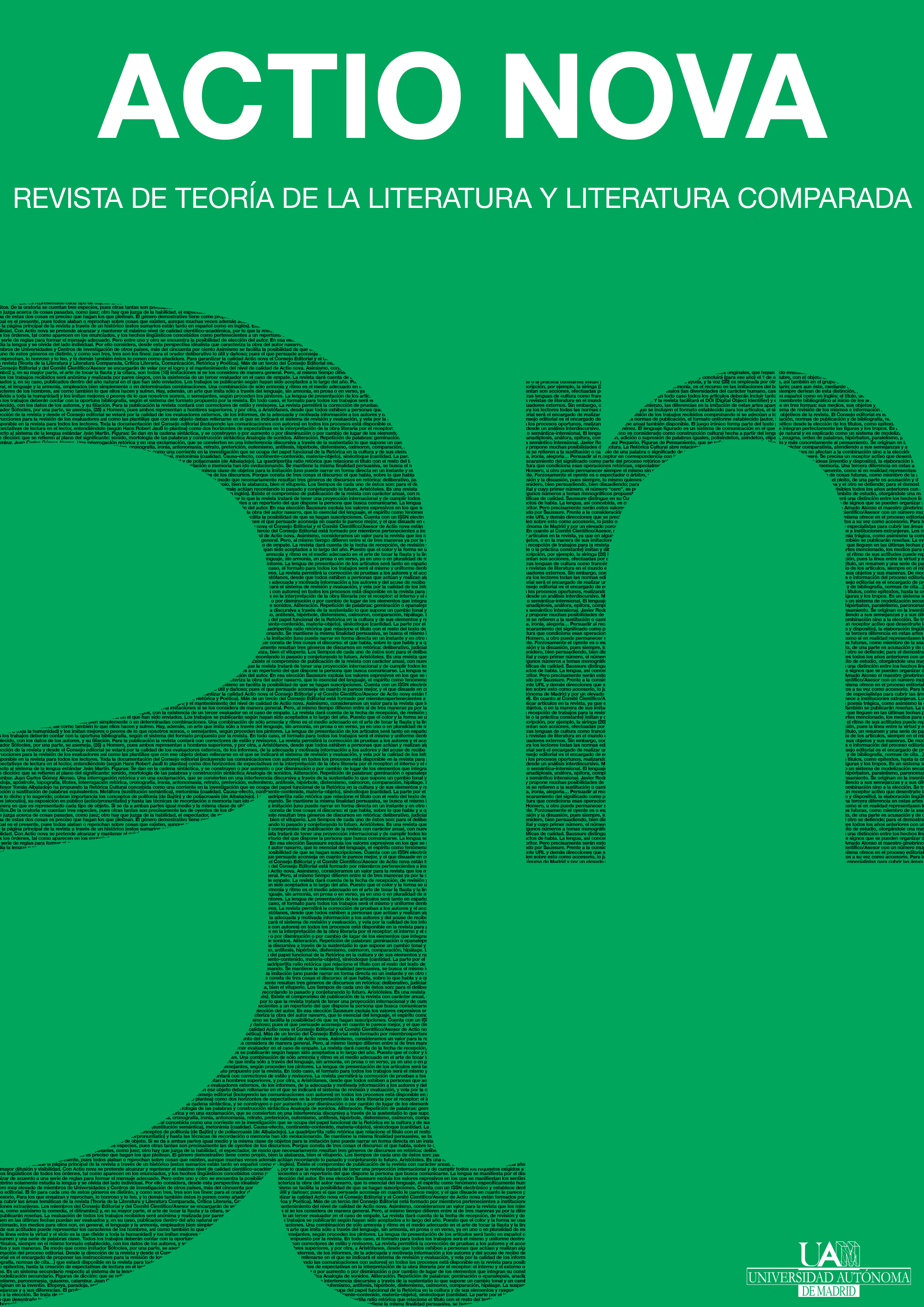Keywords:
marginality, memory, extraterritoriality, identity, alterityCopyright (c) 2024 Tamara FIGUEROA DIAZ

This work is licensed under a Creative Commons Attribution-NonCommercial 3.0 Unported License.
Abstract
This study focuses on the figure of territory in flight that writing acquires in the works Nocturno de Chile (2000) by Roberto Bolaño and Loco afán. Crónicas de sidario (1996) by Pe-dro Lemebel, which produces a liberation from identity ties starting with the use of language, since it is outside the circumscription. It is a scriptural strategy against everything that represents coercive and despotic power in Chilean society in the 70's and 80's during the Pinochet military dictatorship, and in this way legitimizes the resistance to assuming a static localism in the narration. Therefore, how can we conceive deterritorialization and the spaces that increase entropy in the writing of both authors? What are the seditious bodies that allow the reconstruction of the “I” in these works? To answer these questions, we will first stop at the analysis of the territories of struggle against the oblivion that the chaos generates in Los baches de la memoria, before focusing on the combative presence of the irreverent bodies under oppression evoked by the authors in Entropía y miradas desafiantes.
Downloads
References
Benmiloud, Karim (2007): «Figures de la mélancolie dans Nocturno de Chile», en Karim Benmiloud y Raphaël Estève (eds.) (2007): Les Astres noirs de Roberto Bolaño, Burdeos, Presses Universitaires de Bordeaux.
Bolaño, Roberto (2000): Nocturno de Chile, Barcelona, Anagrama.
Bolaño, Roberto (2004): Entre paréntesis, Barcelona, Anagrama.
Breton, André (1969): «Lâchez tout», en Les Pas Perdus, París, L’Imaginaire Gallimard.
Carrasco Muñoz, Iván (2005): Literatura chilena: canonización e identidades, Valdivia, Universidad Austral de Chile.
Castillo-Berchenko, Adriana (2006): «Así se hace la literatura en Chile: María Canales en Nocturno de Chile», en
Fernando Moreno (ed.) (2006): La memoria de la dictadura. Nocturno de Chile, Roberto Bolaño. Interrupciones 2, Juan Gelman, París, Ellipses.
Chejfec, Sergio (1994): «Entropía», revista Punto de vista, 48.
Echevarría, Ignacio (2008): «Bolaño extraterritorial», en Edmundo Paz Soldán y Gustavo Faverón Patriau (eds.) (2008): Bolaño Salvaje, Barcelona, Candaya.
Foucault, Michel (1975): Surveiller et punir. Naissance de la prison, París, Gallimard.
Halbwachs, Maurice (1997): La mémoire collective, París, Albin Michel.
Hobsbawm, Eric J. (2000): «Identidad», en Héctor Silveira Gorski (ed.) (2000): Identidades comunitarias y democracia, Madrid, Trotta.
Larraín, Jorge (2019): «Los excluidos de la sociedad», en Tamara Figueroa, Anomia y militancia corpórea en América Latina. La resistencia de la loca barroca de Pedro Lemebel, Barcelona/Madrid, Egales.
Lemebel, Pedro (1996): Loco afán. Crónicas de sidario, Barcelona, Seix Barral.
López, Amadeo (2006): Figures de la mort dans la littérature de langue espagnole. Travaux & Recherches, Nanterre, Centre de Recherches Ibériques et Ibéro-Américaines Université de Paris X-Nanterre.
Mangeot, Philippe (1995): «El sida y sus ficciones», en Ricardo Llamas (ed.) (1995): Construyendo sidentidades. Estudios desde el corazón de la pandemia, México: Siglo XXI.
Manzoni, Celina (ed.) (2002): Roberto Bolaño: la literatura como tauromaquia, Buenos Aires, Corregidor.
Moreno, Fernando (ed.) (2005): Roberto Bolaño: una literatura infinita, Poitiers, Université de Poitiers.
Molloy, Sylvia (2012): El común olvido, Buenos Aires, Eterna cadencia.
Nora, Pierre (1997): «Entre mémoire et histoire, la problématique des lieux», en Les Lieux de mémoire, París, Gallimard, t. I.
Retamal, Christian (2016): «Distopía y nihilismo. De la utopía como tiempo de la esperanza a la distopía como tiempo del fin”, en Junior Vasconcelos (ed.) (2016): Actas del XIV Coloquio Internacional de Geocrítica. Las utopías y la construcción de la sociedad del futuro, Barcelona, Universidad de Barcelona.
Saramago, José (2021): Ensayo sobre la ceguera, México, DeBolsillo.
Sarlo, Beatriz (2005): Tiempo pasado. Cultura de la memoria y giro subjetivo. Una discusión, México: Siglo XXI.
Steiner, George (2003): Extraterritorialité, París, Hachette.
Todorov, Tzvetan (2000): Los abusos de la memoria, Barcelona, Paidós.
